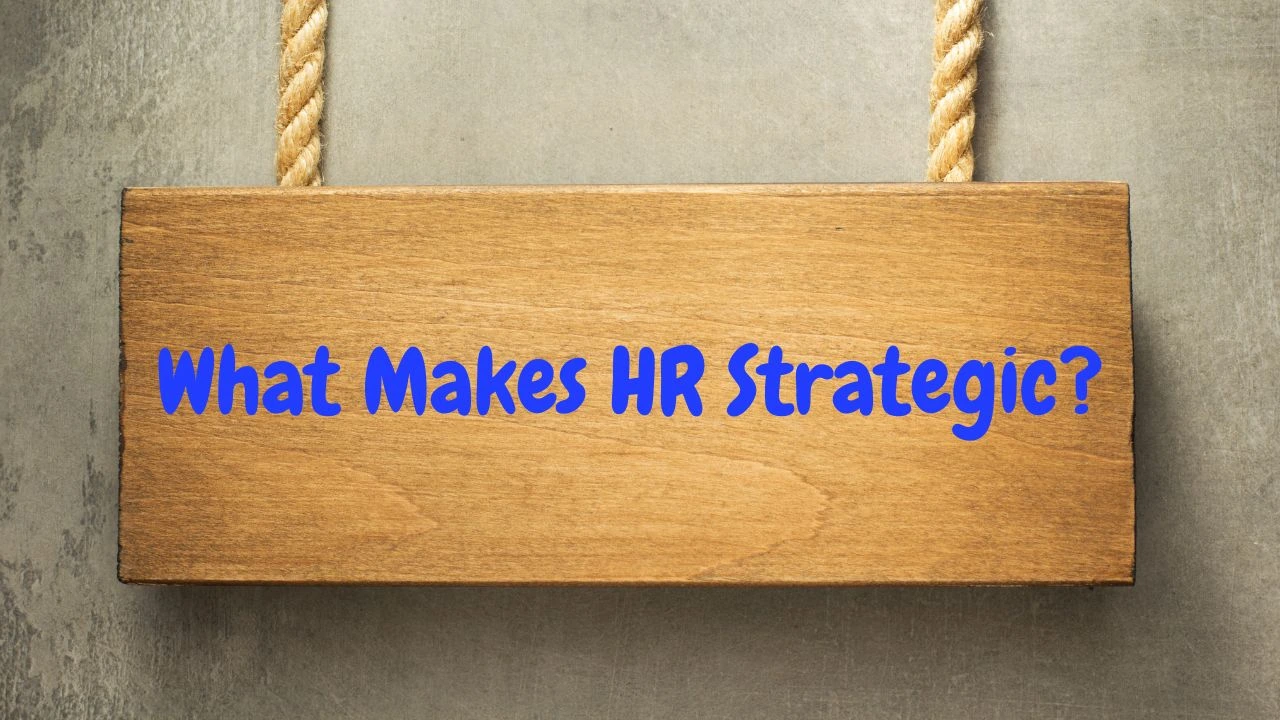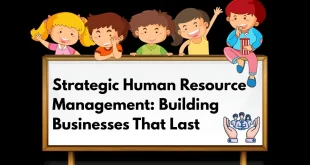In most Indian companies—especially mid-sized ones—HR still gets called in after decisions are made. Hiring’s urgent, someone’s resigning, or there’s a legal hiccup. That’s when HR gets looped in.
Thank you for reading this post, don't forget to subscribe!But what if HR was at the table before the decisions? What if it helped shape those decisions in the first place?
That’s exactly what Strategic Human Resource Management (SHRM) is about. It’s HR not as a back-office team, but as a business partner. It means aligning your people strategy with your business direction—deliberately, not accidentally.
From Firefighting to Future-Planning
Indian businesses are evolving. Startups are scaling fast, family-run companies are going professional, and industries are facing tech disruption left and right. In this scenario, a short-term, reactive HR approach just won’t cut it.
Think about it. What’s the point of investing in tech upgrades if your people aren’t trained for it? Or launching a new vertical without building leadership capacity for it?
That’s where strategic HR steps in.
How Companies Are Already Doing It
Let’s bring this closer to home with a few real-world examples:
-
Infosys has built a strong internal learning ecosystem that prepares its workforce for future tech skills. Their HR doesn’t wait for skill gaps to appear—it anticipates them.
-
Tata Steel, known for its legacy culture, doesn’t rely on external hires for leadership roles. Their internal succession planning is so solid that future leaders are identified and mentored years in advance.
-
Asian Paints uses performance management not just to rate employees but to actively shape its future talent pool. They link every employee’s performance goals to business goals—clearly and directly.
What Makes HR Strategic?
It’s not just about fancy dashboards or big budgets. Strategic HR is built on a few strong pillars:
1. Workforce Planning with Intent
It’s not enough to know how many people you need. You also need to know when, where, and why. Strategic workforce planning aligns hiring with expansion, succession, and even attrition trends.
2. Performance Management with Purpose
When done right, performance management isn’t about annual ratings. It’s about coaching, developing, and recognizing people throughout the year—with a clear eye on business results.
3. Succession Isn’t Only for CEOs
Middle managers, team leads, even shop floor supervisors—strategic HR identifies and nurtures successors at all levels. That’s how continuity is ensured.
4. Data-Driven Decisions
Good instincts help. But decisions backed by real HR data—like retention trends, cost-per-hire, or training effectiveness—make a company more resilient and agile.
Not Just for the Big Players
You might think, “Sure, but we’re not Infosys or Tata.” Fair. But here’s the thing—you don’t need 10,000 employees to be strategic. You just need a shift in mindset.
Even a 30-person company can plan its hiring for the next year, set up a simple performance framework, and start grooming future team leads. And when these habits are built early, scaling becomes smoother.
A Thought That Stays With Me
“HR is about people. But when people strategy is aligned with business goals, that’s when real impact happens.”
— Anuradha Razdan, Executive Director HR, HUL
This quote stayed with me because it’s brutally honest and extremely relevant—especially for those of us working in Indian business environments where HR is often misunderstood.
Wrapping Up: The Case for Thinking Ahead
Here’s my message to fellow HR professionals, entrepreneurs, and business heads:
Stop thinking of HR as a support team. Start treating it as a strategy team. Because everything you want to build—be it market share, innovation, or culture—rests on your people. And if your people strategy isn’t forward-looking, neither is your business.
✅ Call to Action
If you’re reading this as an HR professional—step up. Look beyond operations. Start asking strategic questions at every table you sit at.
If you’re a business leader—bring HR in early. Let them be part of the why and how, not just the who and when.
Strategic HR isn’t a luxury. It’s how modern Indian businesses are built to last.
Frequently Asked Questions (FAQs)
1. What exactly is Strategic Human Resource Management (SHRM)?
SHRM means aligning HR initiatives with your company’s long-term goals. It includes planning, leadership development, and data-backed decisions.
2. Why is SHRM important for Indian businesses?
It helps companies stay prepared, retain talent, and scale efficiently in a competitive, fast-changing environment.
3. Is SHRM only for large corporations?
No. Even startups and mid-sized firms can adopt SHRM by planning ahead, measuring people metrics, and tying HR with business priorities.
 hroptimum
hroptimum


